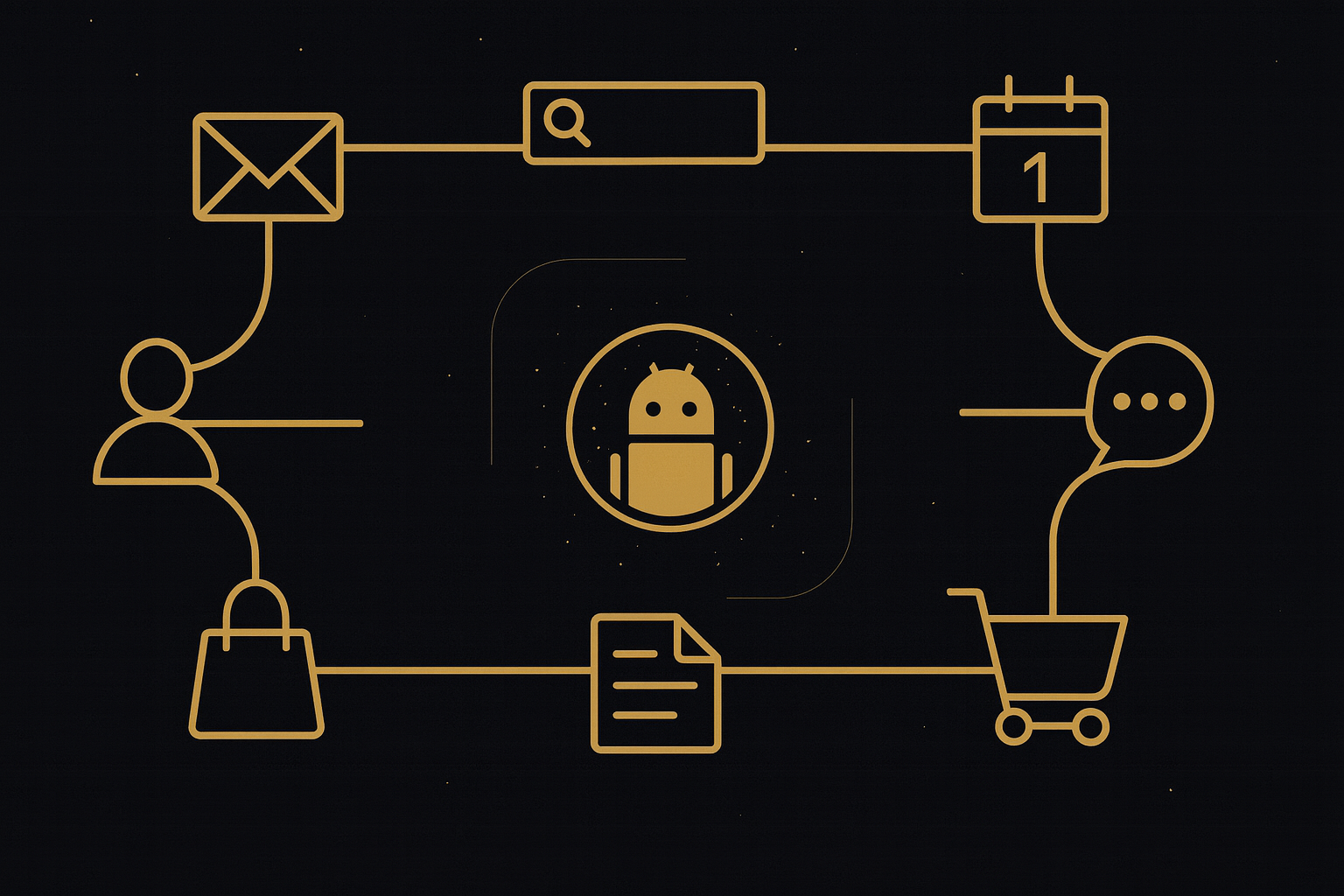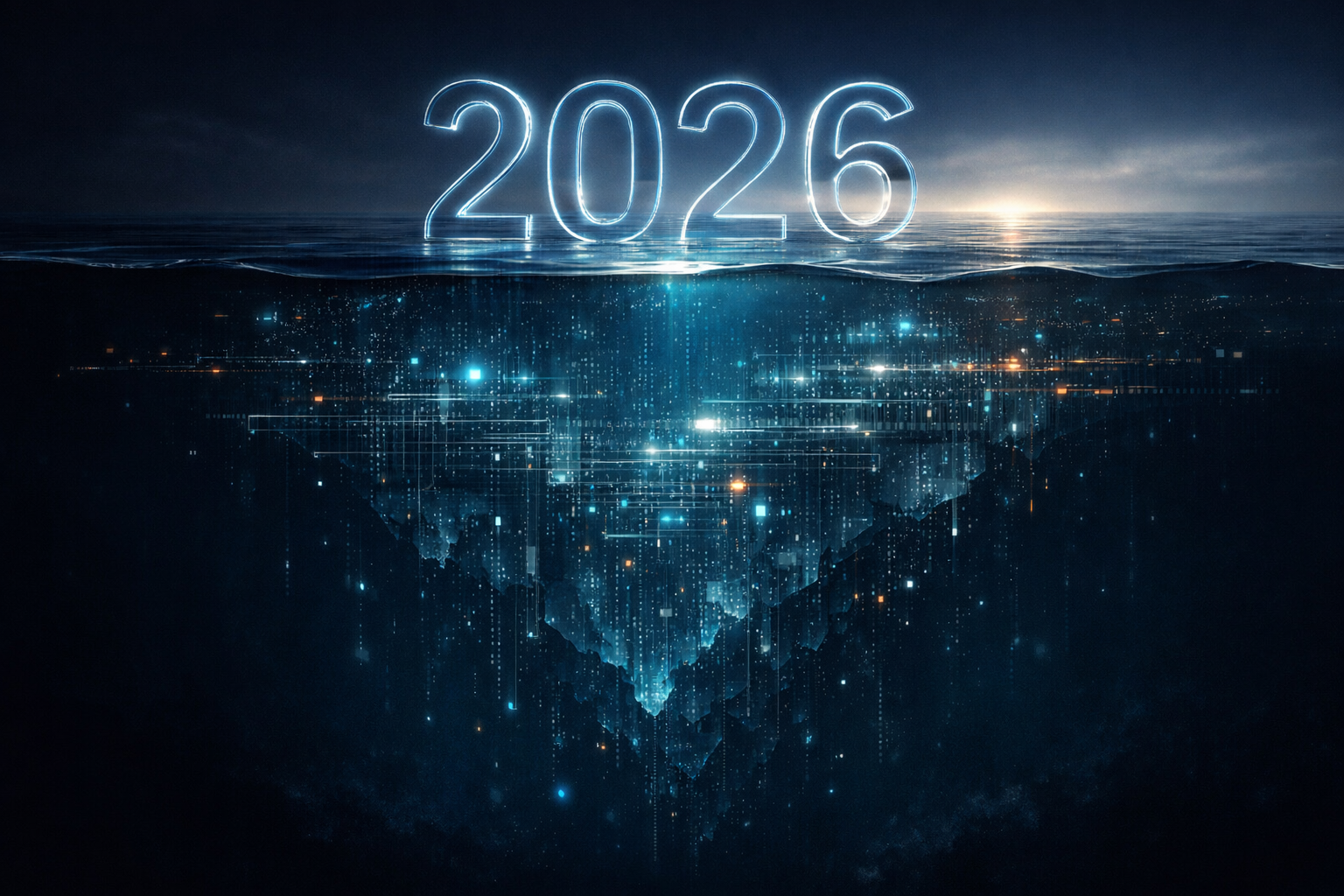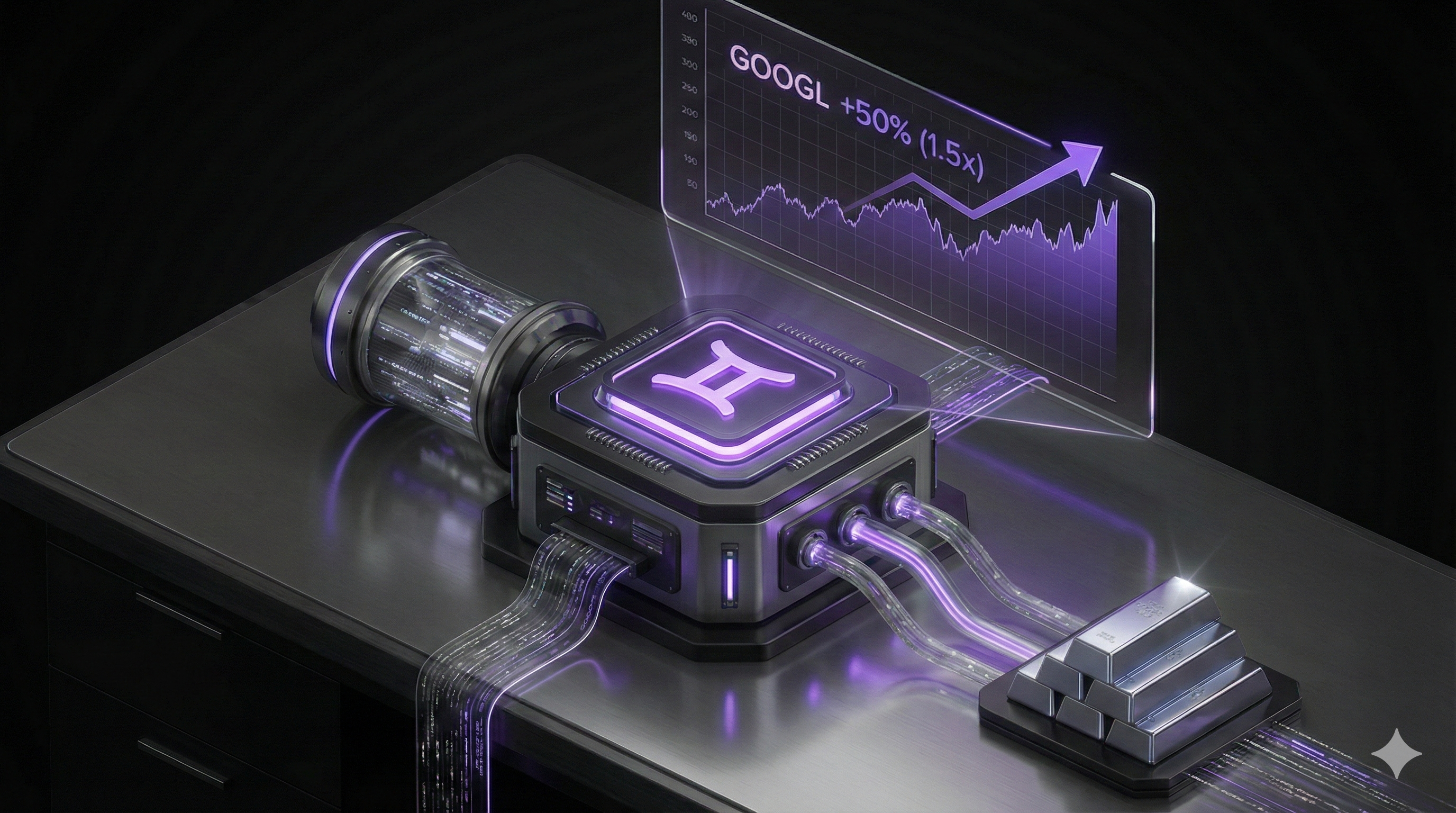THE BROWSER AWAKENS: How Agentic Browsing Is Rewriting the Web


Sash Mohapatra

Sash spent 20 years at Microsoft guiding enterprise clients through the cloud revolution and the rise of AI. Now, as the founder of The Rift, he’s on a mission to enhance human potential by helping people develop practical, future-ready AI skills. He writes from a place of deep curiosity, exploring what it means to stay human as machines reshape the world around us.
October 23, 2025






For nearly two decades, the browser has been the quiet constant of the internet. We have upgraded our phones, switched platforms, and watched apps come and go, but the browser has remained mostly invisible. It was simply the vessel that carried the web. Google Chrome came to define that experience. It was fast, reliable, and omnipresent, so familiar that most people stopped thinking about what a browser even was.
That might finally be changing.
In 2025, the browser is being reimagined, and the transformation is profound. A new generation of tools is emerging under a concept now called agentic browsing. Products like Perplexity’s Comet, Fellou, and ChatGPT’s Atlas are leading this shift. For the first time since Chrome dethroned Internet Explorer, the idea of what a browser is — and what it should do — is being rewritten. The change is not cosmetic or incremental; it signals a deeper evolution in how humans interact with the web. If the browser has always been the tool we used to explore the internet, agentic browsing points to a future where the browser explores it for us.
Subscribe now to unlock the full article and gain unlimited access to all premium content.
SubscribeFor nearly two decades, the browser has been the quiet constant of the internet. We have upgraded our phones, switched platforms, and watched apps come and go, but the browser has remained mostly invisible. It was simply the vessel that carried the web. Google Chrome came to define that experience. It was fast, reliable, and omnipresent, so familiar that most people stopped thinking about what a browser even was.
That might finally be changing.
In 2025, the browser is being reimagined, and the transformation is profound. A new generation of tools is emerging under a concept now called agentic browsing. Products like Perplexity’s Comet, Fellou, and ChatGPT’s Atlas are leading this shift. For the first time since Chrome dethroned Internet Explorer, the idea of what a browser is and what it should do — is being rewritten. The change is not cosmetic or incremental; it signals a deeper evolution in how humans interact with the web. If the browser has always been the tool we used to explore the internet, agentic browsing points to a future where the browser explores it for us.
What Agentic Browsing Really Means
At its core, agentic browsing is a simple but radical idea. Instead of a browser that waits for you to click and scroll, it becomes an intelligent partner that understands context and takes initiative. You no longer have to perform every step manually - searching, comparing, copying, and pasting. You can simply describe what you want, and the browser handles the rest.
Imagine saying, “Find me the best camera under $500, summarise the reviews, and give me the top three options.” That is no longer a fantasy. It is what products like Comet and Atlas can already do. Comet calls itself a browser for agentic search, while Atlas describes itself as a browser with ChatGPT built in - one that allows you to browse, analyze, and act inside the same space. Fellou, an open-source project, adds another layer by letting users record and replay browser actions as workflows, effectively turning browsing into automation.
I explored this evolution recently in my YouTube video on agentic browsing and the comparison between DIA, Fellou, and Comet. Each of these browsers is trying to answer the same question from a different angle: what happens when the browser stops being a viewer and starts being a doer?
It is a subtle but powerful transformation. The browser is no longer just a static frame for content. It is becoming an intelligent intermediary between you and the web, one that understands intent and can act upon it.
The Assistants Move In
You can see this shift most clearly in how the interface itself is evolving. For decades, browsers revolved around a single blank bar, the 'omnibox'. You typed, you searched, you clicked. Now that bar has been replaced by something far more dynamic: a permanent assistant that lives beside your page.
In ChatGPT Atlas, you can open a sidebar that allows you to summarize the article you are reading, translate it, or compare it with another source. Comet takes a similar approach, adding a contextual chat window that understands the content of your current tab. Even Microsoft Edge, with its Copilot mode, now lets you talk to the browser about what you are viewing.
The browsing experience has become conversational. Instead of opening ten tabs and jumping between them to collect snippets or notes, you can simply ask, “What are the key insights from this page?” or “How does this product compare to the last one I looked at?” The assistant knows what you are reading and can work with that context.
The old pattern of search, click, compare, decide is gradually shifting toward ask, act, refine. The browser is no longer a passive tool for navigation. It is starting to become a partner that helps you think, summarize, and execute - a co-pilot for your attention.
From Tabs to Workflows: The Human Shift
The larger transformation, however, goes beyond convenience. Browsers are beginning to function as workflow engines. For years, productivity meant juggling endless tabs, switching between dashboards, documents, and messages. Now, the browser is learning to consolidate that chaos. Instead of managing tabs, you can manage intent. You no longer tell the web what to open; you tell it what to accomplish.
You might say, “Find a flight to Lisbon next week, shortlist two hotels under $300 per night, and add both to my calendar once I confirm.” Or, “Summarize these ten research papers and populate a spreadsheet with the main findings.”
These are not futuristic demos. They are active use cases in Comet and Atlas today. Each task you delegate moves you from manual control toward orchestration. You begin to act less like an operator of the web and more like a supervisor of it.
Early data from Comet suggests users can complete multi-tab workflows up to forty percent faster. Atlas builds on that with browser memory, allowing it to remember what you worked on previously, what articles you summarized, or which datasets you compared.
This shift is as psychological as it is technical. We are moving from browsing to achieving, from chasing links to pursuing outcomes. Students can now digest entire research topics in minutes. Analysts can pull comparisons automatically. Founders and marketers can automate repetitive tasks that once consumed hours.
The browser, once a neutral window, is turning into a platform that thinks alongside you. For the past twenty years, it trained us to multitask. Now, it is learning to multitask for us.
Why Chrome Is Finally Under Pressure
For the first time in a generation, Google Chrome is facing real pressure.
According to StatCounter, Chrome still holds more than seventy percent of the global browser market. Its dominance is so complete that it has almost become invisible, the default nobody questions. Yet the new crop of agentic browsers represents a different kind of competition. They are not simply faster or sleeker; they are redefining the role of the browser itself.
Chrome’s entire business model is built around search and advertising. Agentic browsers quietly bypass both. If your assistant finds and compares products for you, you never need to click through search results or ads. The traditional funnel that powers Google’s economy begins to weaken.
What makes this moment fascinating is that Chrome and its challengers share the same foundation: Chromium. But Comet and Atlas turn that shared core into something new. They are building intelligent browsers rather than display browsers.
Industry observers have called this “the first structural challenge to Chrome’s dominance in twenty years.” The stakes are enormous. Will Google embed Gemini more deeply into Chrome to stay ahead? Or will it hold back, constrained by the need to protect its ad-driven model?
Either way, the ground has shifted. The next browser war will not be fought over speed or extensions. It will be fought over intelligence, who can make the browser think better, act smarter, and understand the user more deeply.
Risks and the New Web Contract
Of course, with power comes risk. Agentic browsing gives the browser greater access than ever before. These assistants can see your open tabs, your forms, even your credentials. Researchers have already pointed to vulnerabilities in “web-use agents” that could expose sensitive data.
We are entering what I like to call a new web contract. We will need to decide how much autonomy we want to give our browsers and how much visibility we are willing to lose in exchange for convenience. It is a strange paradox. To gain freedom, we may have to surrender a bit of control.
This trade-off will define the next phase of the internet. Just as we once learned to trust cloud storage and digital payments, we will now need to learn how to trust agentic systems that can act on our behalf.
The Future Is Browsing You
The browser began as a window to the web. Then it became a habit. Now it is becoming a partner.
In the years ahead, it might not just open links or tabs. It may anticipate what we need, gather context before we ask, and execute actions while we focus elsewhere. The web will begin to feel less like a vast ocean we navigate and more like an ecosystem that understands us.
This is the dawn of the agentic web, a place where human intent meets machine initiative, and where our commands evolve into conversations. Browsing as we know it may become a relic of an earlier internet, replaced by a world where information flows through cooperation between user and agent.
Chrome may still hold the crown, but the throne itself is changing shape. We used to open browsers to explore the web. Now, browsers are learning to explore it for us.
For nearly two decades, the browser has been the quiet constant of the internet. We have upgraded our phones, switched platforms, and watched apps come and go, but the browser has remained mostly invisible. It was simply the vessel that carried the web. Google Chrome came to define that experience. It was fast, reliable, and omnipresent, so familiar that most people stopped thinking about what a browser even was.
That might finally be changing.
In 2025, the browser is being reimagined, and the transformation is profound. A new generation of tools is emerging under a concept now called agentic browsing. Products like Perplexity’s Comet, Fellou, and ChatGPT’s Atlas are leading this shift. For the first time since Chrome dethroned Internet Explorer, the idea of what a browser is and what it should do — is being rewritten. The change is not cosmetic or incremental; it signals a deeper evolution in how humans interact with the web. If the browser has always been the tool we used to explore the internet, agentic browsing points to a future where the browser explores it for us.
What Agentic Browsing Really Means
At its core, agentic browsing is a simple but radical idea. Instead of a browser that waits for you to click and scroll, it becomes an intelligent partner that understands context and takes initiative. You no longer have to perform every step manually - searching, comparing, copying, and pasting. You can simply describe what you want, and the browser handles the rest.
Imagine saying, “Find me the best camera under $500, summarise the reviews, and give me the top three options.” That is no longer a fantasy. It is what products like Comet and Atlas can already do. Comet calls itself a browser for agentic search, while Atlas describes itself as a browser with ChatGPT built in - one that allows you to browse, analyze, and act inside the same space. Fellou, an open-source project, adds another layer by letting users record and replay browser actions as workflows, effectively turning browsing into automation.
I explored this evolution recently in my YouTube video on agentic browsing and the comparison between DIA, Fellou, and Comet. Each of these browsers is trying to answer the same question from a different angle: what happens when the browser stops being a viewer and starts being a doer?
It is a subtle but powerful transformation. The browser is no longer just a static frame for content. It is becoming an intelligent intermediary between you and the web, one that understands intent and can act upon it.
The Assistants Move In
You can see this shift most clearly in how the interface itself is evolving. For decades, browsers revolved around a single blank bar, the 'omnibox'. You typed, you searched, you clicked. Now that bar has been replaced by something far more dynamic: a permanent assistant that lives beside your page.
In ChatGPT Atlas, you can open a sidebar that allows you to summarize the article you are reading, translate it, or compare it with another source. Comet takes a similar approach, adding a contextual chat window that understands the content of your current tab. Even Microsoft Edge, with its Copilot mode, now lets you talk to the browser about what you are viewing.
The browsing experience has become conversational. Instead of opening ten tabs and jumping between them to collect snippets or notes, you can simply ask, “What are the key insights from this page?” or “How does this product compare to the last one I looked at?” The assistant knows what you are reading and can work with that context.
The old pattern of search, click, compare, decide is gradually shifting toward ask, act, refine. The browser is no longer a passive tool for navigation. It is starting to become a partner that helps you think, summarize, and execute - a co-pilot for your attention.
From Tabs to Workflows: The Human Shift
The larger transformation, however, goes beyond convenience. Browsers are beginning to function as workflow engines. For years, productivity meant juggling endless tabs, switching between dashboards, documents, and messages. Now, the browser is learning to consolidate that chaos. Instead of managing tabs, you can manage intent. You no longer tell the web what to open; you tell it what to accomplish.
You might say, “Find a flight to Lisbon next week, shortlist two hotels under $300 per night, and add both to my calendar once I confirm.” Or, “Summarize these ten research papers and populate a spreadsheet with the main findings.”
These are not futuristic demos. They are active use cases in Comet and Atlas today. Each task you delegate moves you from manual control toward orchestration. You begin to act less like an operator of the web and more like a supervisor of it.
Early data from Comet suggests users can complete multi-tab workflows up to forty percent faster. Atlas builds on that with browser memory, allowing it to remember what you worked on previously, what articles you summarized, or which datasets you compared.
This shift is as psychological as it is technical. We are moving from browsing to achieving, from chasing links to pursuing outcomes. Students can now digest entire research topics in minutes. Analysts can pull comparisons automatically. Founders and marketers can automate repetitive tasks that once consumed hours.
The browser, once a neutral window, is turning into a platform that thinks alongside you. For the past twenty years, it trained us to multitask. Now, it is learning to multitask for us.
Why Chrome Is Finally Under Pressure
For the first time in a generation, Google Chrome is facing real pressure.
According to StatCounter, Chrome still holds more than seventy percent of the global browser market. Its dominance is so complete that it has almost become invisible, the default nobody questions. Yet the new crop of agentic browsers represents a different kind of competition. They are not simply faster or sleeker; they are redefining the role of the browser itself.
Chrome’s entire business model is built around search and advertising. Agentic browsers quietly bypass both. If your assistant finds and compares products for you, you never need to click through search results or ads. The traditional funnel that powers Google’s economy begins to weaken.
What makes this moment fascinating is that Chrome and its challengers share the same foundation: Chromium. But Comet and Atlas turn that shared core into something new. They are building intelligent browsers rather than display browsers.
Industry observers have called this “the first structural challenge to Chrome’s dominance in twenty years.” The stakes are enormous. Will Google embed Gemini more deeply into Chrome to stay ahead? Or will it hold back, constrained by the need to protect its ad-driven model?
Either way, the ground has shifted. The next browser war will not be fought over speed or extensions. It will be fought over intelligence, who can make the browser think better, act smarter, and understand the user more deeply.
Risks and the New Web Contract
Of course, with power comes risk. Agentic browsing gives the browser greater access than ever before. These assistants can see your open tabs, your forms, even your credentials. Researchers have already pointed to vulnerabilities in “web-use agents” that could expose sensitive data.
We are entering what I like to call a new web contract. We will need to decide how much autonomy we want to give our browsers and how much visibility we are willing to lose in exchange for convenience. It is a strange paradox. To gain freedom, we may have to surrender a bit of control.
This trade-off will define the next phase of the internet. Just as we once learned to trust cloud storage and digital payments, we will now need to learn how to trust agentic systems that can act on our behalf.
The Future Is Browsing You
The browser began as a window to the web. Then it became a habit. Now it is becoming a partner.
In the years ahead, it might not just open links or tabs. It may anticipate what we need, gather context before we ask, and execute actions while we focus elsewhere. The web will begin to feel less like a vast ocean we navigate and more like an ecosystem that understands us.
This is the dawn of the agentic web, a place where human intent meets machine initiative, and where our commands evolve into conversations. Browsing as we know it may become a relic of an earlier internet, replaced by a world where information flows through cooperation between user and agent.
Chrome may still hold the crown, but the throne itself is changing shape. We used to open browsers to explore the web. Now, browsers are learning to explore it for us.


.svg)


